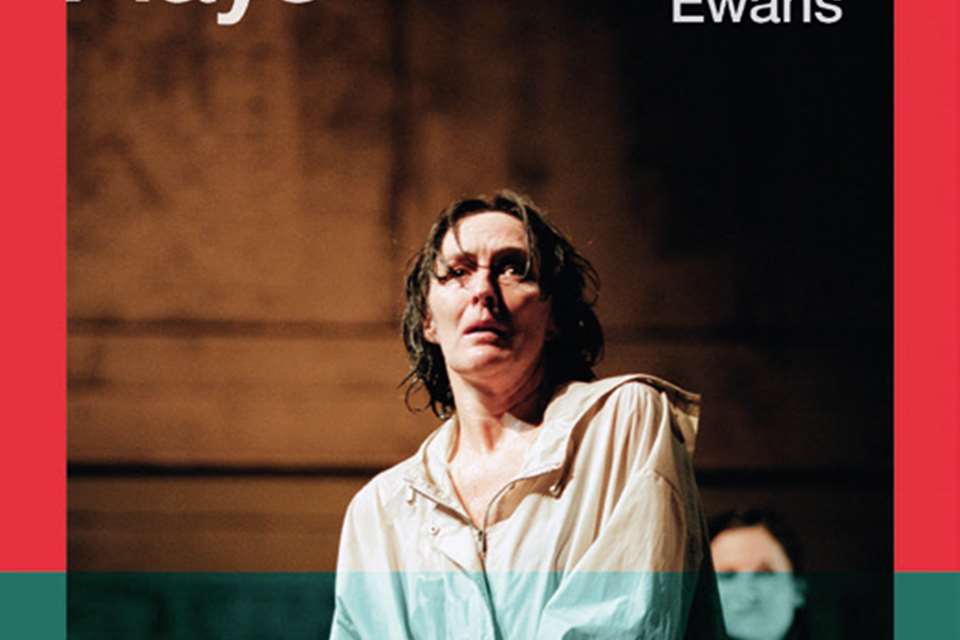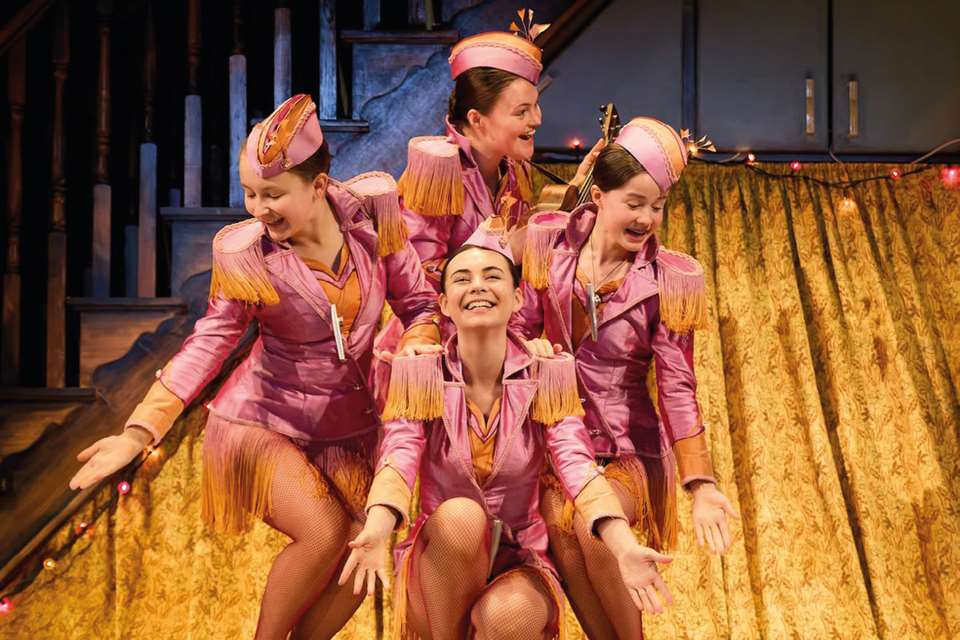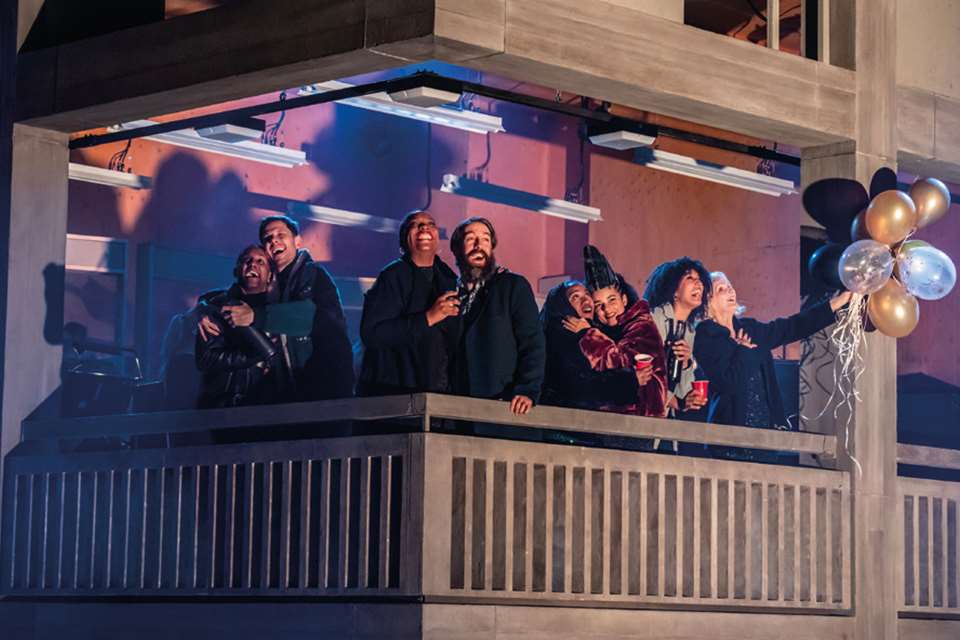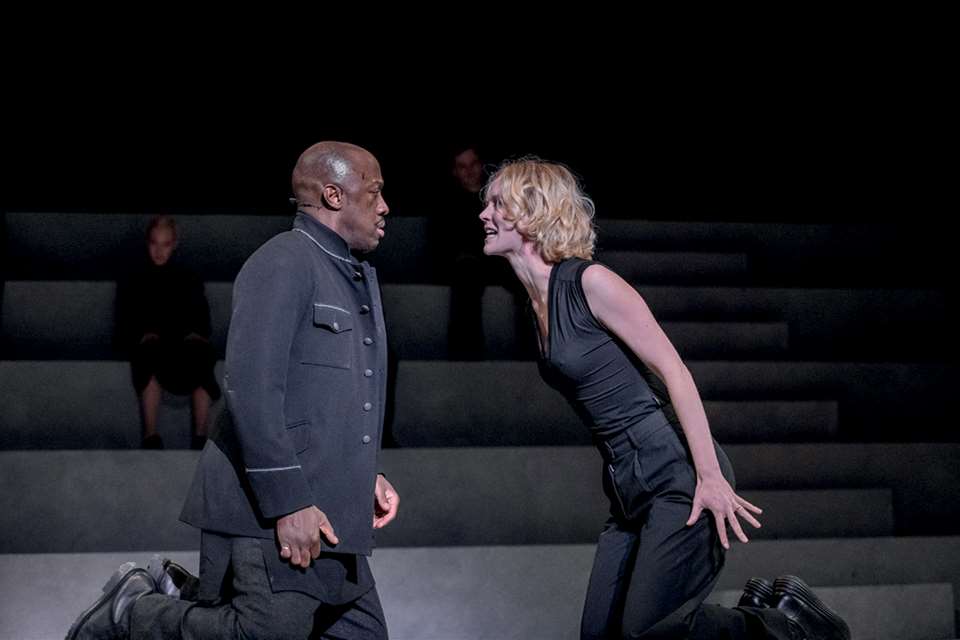Backstage breakthroughs: RSC Backstage Apprentices
Freya Parr
Friday, March 1, 2024
Having previously discussed how apprenticeship schemes are an under-used resource for gaining industry experience in the performing arts, in this issue Freya Parr takes a look at a brilliant scheme run by the RSC that is tackling this problem

Sara Beaumont
‘I only knew creative arts apprenticeships existed because of my life coach, who was someone who wasn't offered through college – and I had to pay for the sessions myself.’ This is Olivia Creed, who is now an apprentice stage and props technician with the RSC, a position she'd never have considered if she'd just listened to her teachers. This is the experience of many of the RSC's apprentices who have ended up on one of very few creative apprenticeships on offer in the UK. Trainee venue manager George Holmes came to his apprenticeship (the second he has undertaken at the RSC) in a similar way. After having been swept up in the groupthink of believing he should go to university, he ended up studying Sociology for a term and finding that it wasn't for him. ‘After I left, I went back to my job in retail,’ he explains. ‘I wasn't looking for apprenticeships, but I applied for job alerts with the RSC and this came up.’
The right choice
Now they're partway through the process, Creed and Holmes are comfortable in the knowledge that they made the right decisions in choosing apprenticeships – but they both admit this was not the path they were sent on from school. This is a sentiment echoed in the recently published report from the All-Party Parliamentary group for Creative Diversity, which called for the urgent revision of creative and cultural education provision. The report found that degree courses were still the dominant route, but there was huge potential for apprenticeships in the creative sector. Read more about this in issue 112 of D&T.
Despite this, there are still very few apprenticeships in theatre available. The Ambassador Theatre Group offers five positions to work at one of its regional or London venues as a creative venue technician, and the National Theatre has hosted 40 apprentices in backstage and business operations since 2011. These aren't enormous numbers, however, which is likely due to the current funding model for apprenticeships, which the parliamentary report looked into. SOLT (Society of London Theatre) and UK Theatre assessed the model and deemed it to be not fit for purpose – and financially viable – for employers and organisations working in the creative sector.
A broad array of options
The RSC has made huge strides in opening up its apprenticeships programme, with apprenticeships offered in customer services, venue management, scenic carpentry, scenic engineering, catering, costume, nursery, prop making, automation and maintenance engineering. With a constantly changing production at the centre of the theatre, every month is different. ‘I'm thrown into every show we have on, and so far this year I've worked on Macbeth, Cowbois, The Empress and A Midsummer Night's Dream,’ says Creed. ‘You learn on the job and are treated like a member of staff.’
One of the key benefits of an apprenticeship is that you are fast tracked into the working world – something that comes with its own unique set of challenges. ‘Going from a classroom with one adult and 20 kids, the roles have now been reversed. Everyone else is the adult and I'm the only “child”. I work with people who have been at the RSC since before I was born,’ says Creed. ‘It's great though, because there's so much to learn and everyone wants to help you. Everyone is so different because their jobs are so different and the shows we work on are so different. That's what keeps it entertaining. One month will be a very traditional staging, whereas the next will be very technically advanced, with stage revolutions and traps and flying. The apprenticeship is built so the complexity of what you're working on slowly builds.’
In and out of the classroom
Alongside their four days of work at the RSC, Creed and Holmes have one day of college to supplement their practical learning. ‘My first apprenticeship was split across front of house, retail and catering, whereas this one is more advanced and focused on venue management,’ Holmes explains. ‘I have one apprenticeship day, which is like self-study coursework, so it can be training given by the college or the RSC. Sometimes it's shadowing other departments in the company or shadowing other theatres to compare how their approaches differ. We then have two days which is more on the building management side, which is all about working in a building that facilitates rehearsals, but also meetings, conferences or other big work events. The other two days a week we'll be working on performances either in our main spaces or in our outdoor theatre in summer.’ Creed has one apprenticeship day a week as well, which supplements what she learns at the RSC. ‘We've been learning about sustainability in theatre, the ways we communicate, and the health and safety regulations to do with machinery and power tools of low and high risk.’
While neither Creed nor Holmes had initially looked for apprenticeships as a way into the industry, they're now working alongside the great and the good from the world of theatre – and there's no looking back. ‘Apprenticeships are everyone,’ says Holmes. ‘They are perfect for people who like to learn as they go.’ Creed agrees. ‘They teach you what you want to know, and the variety of theatre you're exposed to is amazing.’







